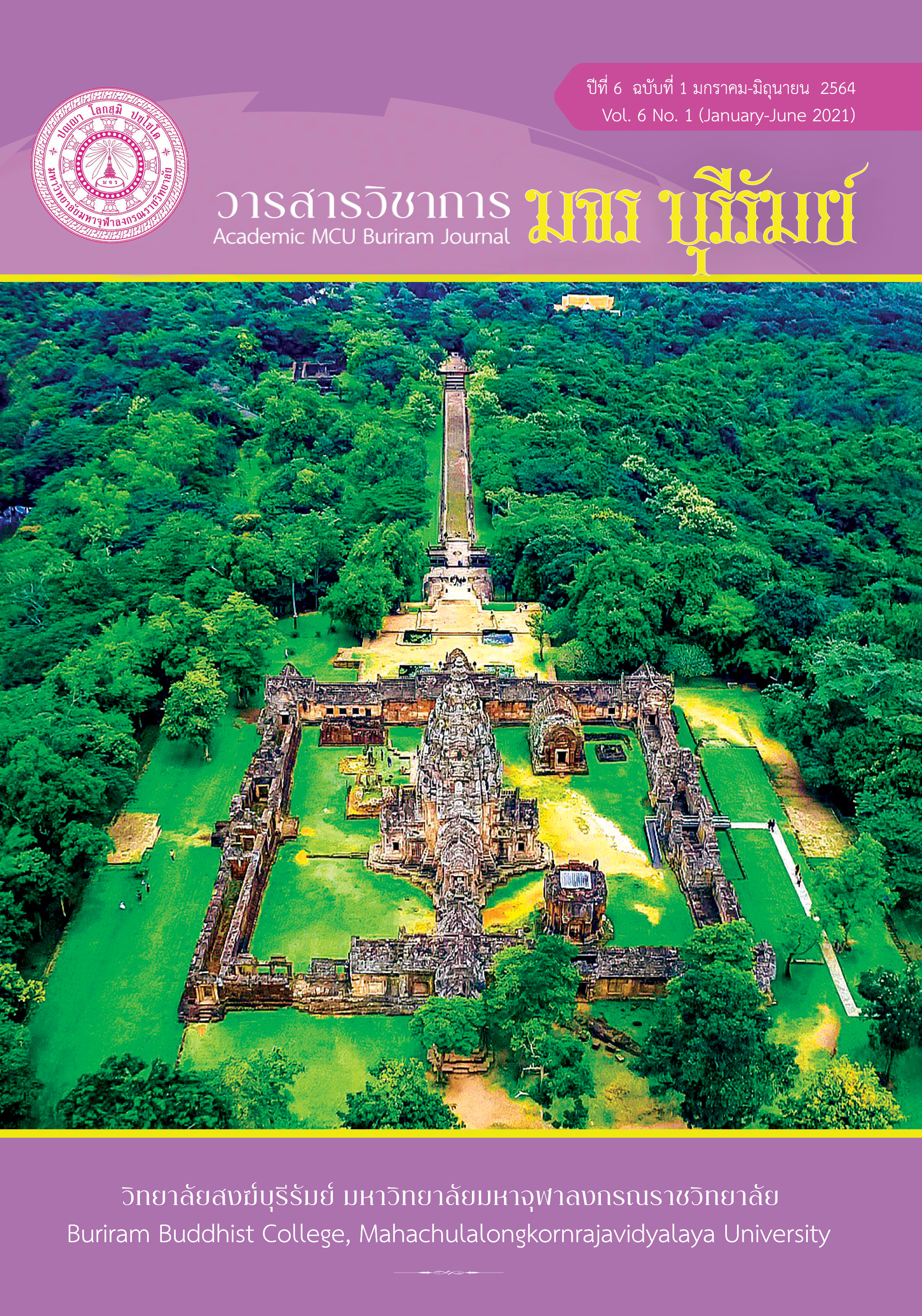A Model of Activity Administration in Environmental Development with 3Rs of Thungtako Network School under Chumphon Primary Educational Service Area Office 2
Keywords:
Model, Administration, Environmental Development Activity, 3RsAbstract
This research aimed 1) to study the conditions of administration of environmental development activity, 2) to investigate administration model of the environmental development activity according to 3Rs and 3) to present the administration model of environmental development activity with 3Rs of Thungtako network school under Chumphon Primary Educational Service Area Office 2. This was a qualitative research with data collected from a condition study by in-depth interviews from 10 informants, 3 persons for in-depth interviews and drafting model, and presenting the model by group discussion of 7 experts.
The research result finds that:
- The current conditions of the management of the schools’ environmental development activity in Thungtako network school deal with activities conducted to improve the environment by organizing activities in accordance with moral and ethical activities and desirable characteristics through integrated activities with various learning strands, which emphasize students to take action in order to improve waste management behavior.
- The model administration of environmental development activity with 3Rs of Thungtako network school consists of the followings: 1) name of a model; 2) principle of rationality; 3) objective; 4) guidelines and 5) follow-up and evaluation in accordance with the principle 3Rs, the 1) Reduce (less use), 2) Reuse (reprocess), and 3) Recycle (Reutilization).
3. Regarding the model administration of environmental development activity with 3Rs of Thungtako network school under Chumphon Primary Educational Service Area Office 2, it was found that the development of the environment in based on the 3Rs principle was accorded with the objectives of the model formed by the researcher and approved by the experts, which was appropriate, practicable, and beneficial.
References
กระทรวงทรัพยากรธรรมชาติและสิ่งแวดล้อม. (2559). คู่มือกิจกรรมสิ่งแวดล้อมศึกษา Z (H)ero Waste: ปฏิบัติการขยะเหลือศูนย์. กรุงเทพมหานคร: โรงพิมพ์ชุมนุมสหกรณ์การเกษตรแห่งประเทศไทย จำกัด.
กระทรวงทรัพยากรธรรมชาติและสิ่งแวดล้อม. (2561). คู่มือปฏิบัติการ 3 ใช้ (3Rs) เพื่อจัดการขยะชุมชน. พิมพ์ครั้งที่ 2.กรุงเทพมหานคร: บริษัท ฮีซ์ จำกัด.
กระทรวงศึกษาธิการ. (2552). หลักสูตรแกนกลางการศึกษาขั้นพื้นฐาน พุทธศักราช 2551. กรุงเทพมหานคร: โรงพิมพ์ชุมชนสหกรณ์การเกษตรแห่งประเทศไทย.
นินาท พลเดชและคณะ. (2558). รูปแบบการบริหารสิ่งแวดล้อมที่ส่งเสริมการจัดการเรียนรู้ในสถานศึกษาขั้นพื้นฐาน. วารสารบริหารการศึกษาบัวบัณฑิต มหาวิทยาลัยราชภัฏอุบลราชธานี, 15(ฉบับพิเศษ), 305.
บุญเพียง แทบสีและคณะ. (2553). การเสริมสร้างวินัยนักเรียนด้านความรับผิดชอบ สำหรับนักเรียนช่วงชั้นที่ 3 กรณีศึกษาโรงเรียนบ้านกอกวิทยาคม อำเภอสมเด็จ จังหวัดกาฬสินธุ์. วารสารศึกษาศาสตร์มหาวิทยาลัยมหาสารคาม, 3(2), 173.
พิชญา ปิยจันทร์. (2560). สิ่งแวดล้อมศึกษา:กระบวนการเรียนรู้ผ่านการลงมือทำอย่างเท่าเทียม. วารสารสิ่งแวดล้อม, 21(3), 38-42.
มารียัม เจ๊ะเต๊ะ. (2556). ปัจจัยที่มีความสัมพันธ์กับการอนุรักษ์สิ่งแวดล้อมในโรงเรียนของนักเรียนชั้นมัธยมศึกษาตอนต้น: กรณีศึกษา โรงเรียนธรรมวิทยามูลนิธิ อำเภอเมือง จังหวัดยะลา. วิทยานิพนธ์วิทยาศาสตรมหาบัณฑิต, คณะพัฒนาสังคมและสิ่งแวดล้อม: สถาบันบัณฑิตพัฒนบริหารศาสตร์.
สำนักงานคณะกรรมการพัฒนาการเศรษฐกิจและสังคมแห่งชาติ. (2559). สรุปสาระสำคัญแผนพัฒนาเศรษฐกิจและสังคมแห่งชาติ ฉบับที่ 12 พ.ศ. 2560-2564. กรุงเทพมหานคร: สำนักคณะกรรมการพัฒนาเศรษฐกิจและสังคมแห่งชาติ สำนักนายกรัฐมตรี.
สำนักงานปลัดกระทรวงทรัพยากรธรรมชาติและสิ่งแวดล้อม. (2559). แผนยุทธศาสตร์กระทรวงทรัพยากรธรรมชาติและสิ่งแวดล้อม พ.ศ. 2559-2564.
สำนักงานเลขาธิการสภาการศึกษา. (2560). แผนการศึกษาแห่งชาติ พ.ศ. 2560-2579. กรุงเทพมหานคร: พริกหวานกราฟฟิค จำกัด.
สุมาลี พุ่มภิญโญ และ เสาวลักษณ์ กู้เจริญประสิทธิ์. (2560). พฤติกรรมในการจัดการขยะของครัวเรือน ตามแนวคิด 3Rs: กรณีศึกษาเทศบาลพระนครศรีอยุธยา. วารสารการจัดการสิ่งแวดล้อม, 13(1), 84.
Ahmedul Hye Chowdhury. (2014). Developing 3Rs (Reduce, Reuse and Recycle) Strategy for Waste Management in the Urban Areas of Bangladesh: Socioeconomic and Climate Adoption Mitigation Option. Environmental Science, Toxicology and Food Technology, 5(1), 9-18.
Downloads
Published
How to Cite
Issue
Section
License
ทัศนะและความคิดเห็นที่ปรากฏในบทความวารสารฉบับนี้ถือเป็นความรับผิดชอบของผู้เขียนบทความนั้น ไม่ถือเป็นทัศนะและความรับผิดชอบของบรรณาธิการ





